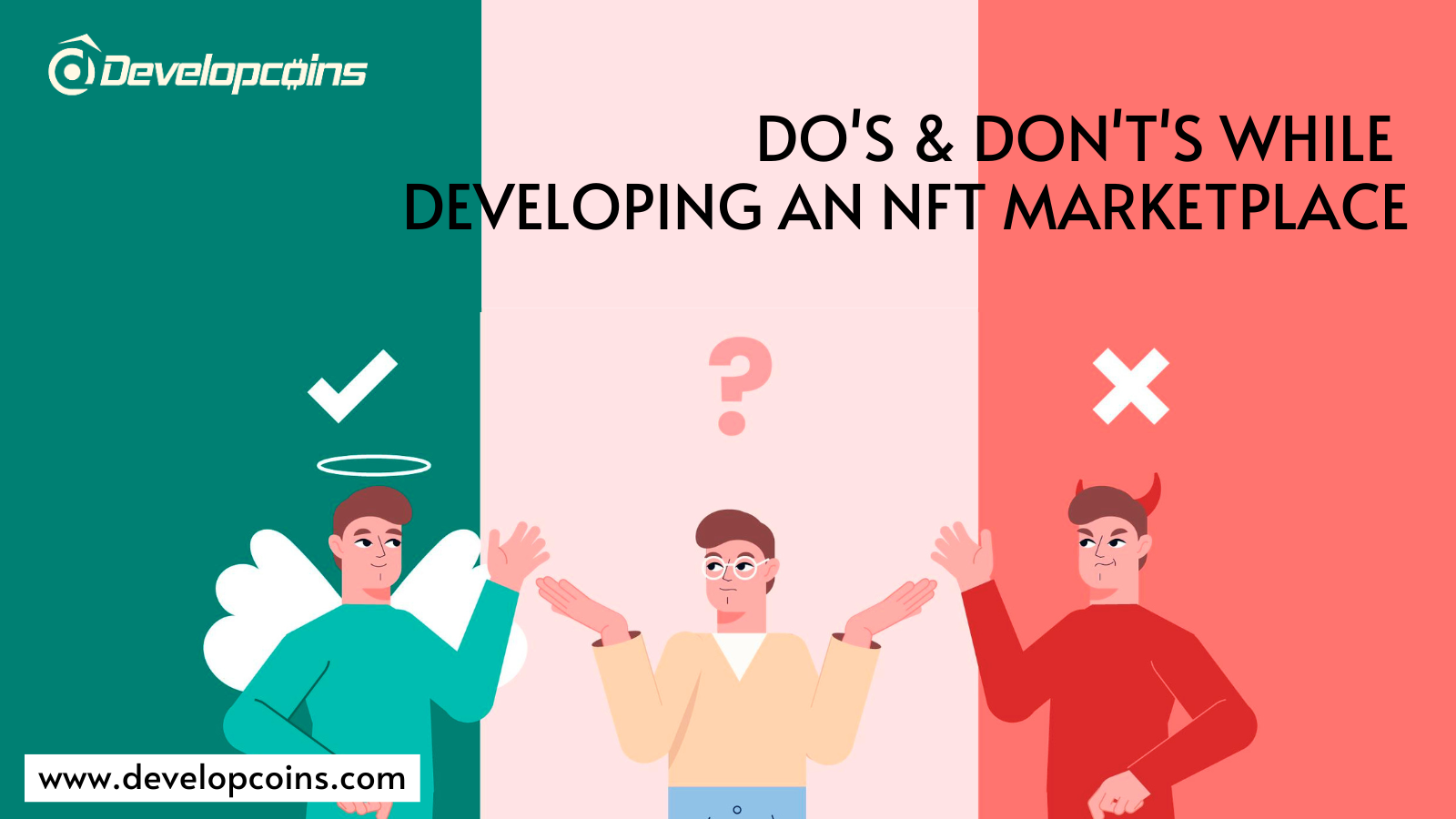

Everything you need to consider while developing an NFT marketplace

By 2030, the global NFT market is anticipated to bring in close to $231 billion. The rising demand for digital collectibles, the rise of cryptocurrencies, and the expanding use of blockchain technology are some of the causes fueling this quick growth.
As they may be purchased, sold, or traded just like any other asset, NFTs present a special potential equally for investors and collectors. NFTs are tamper and immutable proof since they are held on the blockchain, unlike conventional assets.
Thus, NFTs have a special degree of authenticity and exclusivity that is proving to be very popular with collectors. We are likely to see even more creative applications for this fascinating new technology in the years to come because the worldwide NFT market is expected to continue expanding quickly. In this guide, we will explore Do's and Dont's of creating an NFT marketplace.
A digital platform called the NFT marketplace lets people buy and sell NFTs. They are frequently used to symbolize objects in collectibles, virtual worlds, and video games. Users can trade NFTs easily using an NFT marketplace. Users can also establish prices for their NFTs and locate customers for them through this tool. The NFT market is a fantastic area for investors and collectors to buy and sell NFTs.
Several important guidelines must be followed while developing an NFT marketplace. Essentially, your platform should be decentralized, transparent, and secure.
Security Based On Cloud Security Solutions
Regarding the security of the market components, you should choose cloud security solutions that can help you preserve your confidential data.
Transparency With No Unanticipated Problems
Transparency in this context indicates that there must be no unanticipated problems throughout the payment procedure. you can choose blockchain technology to ensure the smooth operation of your cryptocurrency transactions. This technology will enable you to see any transaction that occurs near your NFT platform in precise detail.
Decentralization To Avoid Data Loss
Decentralization means that your transaction data shouldn't be kept in a single location. Copying the data and distributing it among several networks is advised. Decentralization assists you avoid data loss from significant attacks.
Not Following Proper NFT Guidelines
ERC-721 is now the most well-known and extensively utilized NFT standard. So, if you are developing a marketplace, make sure it complies with ERC-721 regulations. When developing NFT data or metadata, one should adhere to the structure and naming conventions outlined in the ERC-721 standard. By doing this, you ensure that NFTs created on your marketplace may be accessed by other marketplaces.
Getting Data From The Database Storage
Anyone working on the system's backend can change the data because it can be changed in a database. However, the information in a digital ledger cannot be altered. Because of this, it provides total transparency and cannot be changed or removed.
Blockchain Backend Editing Operation
Transactions can be started in NFT markets from either the front end or the back end. During the front-end procedure, the user signs the transaction with their private key, which is stored in their digital wallet. However, the backend procedure is carried out by platform developers using their private keys while they are working on the backend.
Architectural Issues With Smart Contracts
Smart contracts are utilized to carry out all operational tasks in an NFT marketplace. They initiate each action that must be performed on the platform. They are therefore essential to the operation of NFT markets. Smart contracts must therefore always be created properly.
NFT Fee Not Being Implemented
Either royalties or market commissions are acceptable commission types in a marketplace. The following two commissions can assist you and the artists earn more money while building an NFT marketplace.
Royalty Fee
Each time a user sells their NFT and another user buys it, a royal commission should be added to the owner's wallet. NFT royalties are monetary payments made to NFT creators as compensation for their ongoing operations.
Merchandise Commission
Every time a user posts an NFT there, a predetermined fixed commission % must be added to the marketplace owner's account. The marketplace and royalty commissions provide the marketplace with a predetermined percentage for each sale.
Third-party APIs
You might think of considering using third-party APIs rather than keeping crucial data about an NFT in your marketplace database. An NFT API contains every nugget of information regarding NFT collections, transactions, users, etc. You can get an NFT's pricing, metadata, ownership details, transfer details, and more.
Now, is a great time to develop an NFT marketplace platform because of NFT's rising popularity. It is your responsibility as a crypto enthusiast to make sure that you develop with them and reap the many advantages that NFTs and blockchain technology have to offer. If you have an idea for an NFT marketplace development then contact our experts for consultation and guidance!!